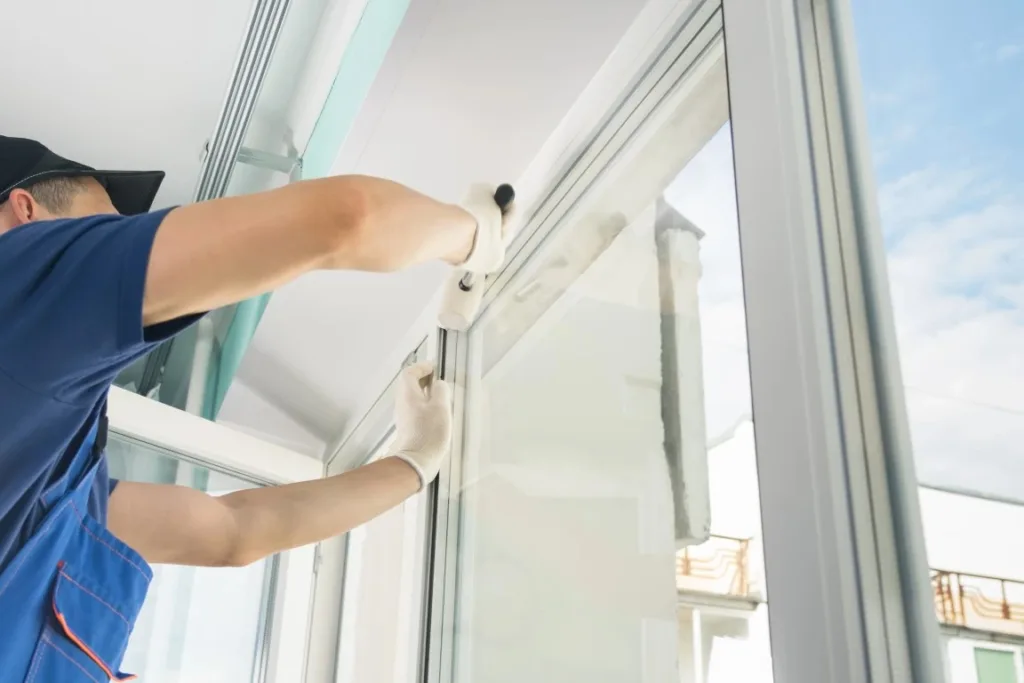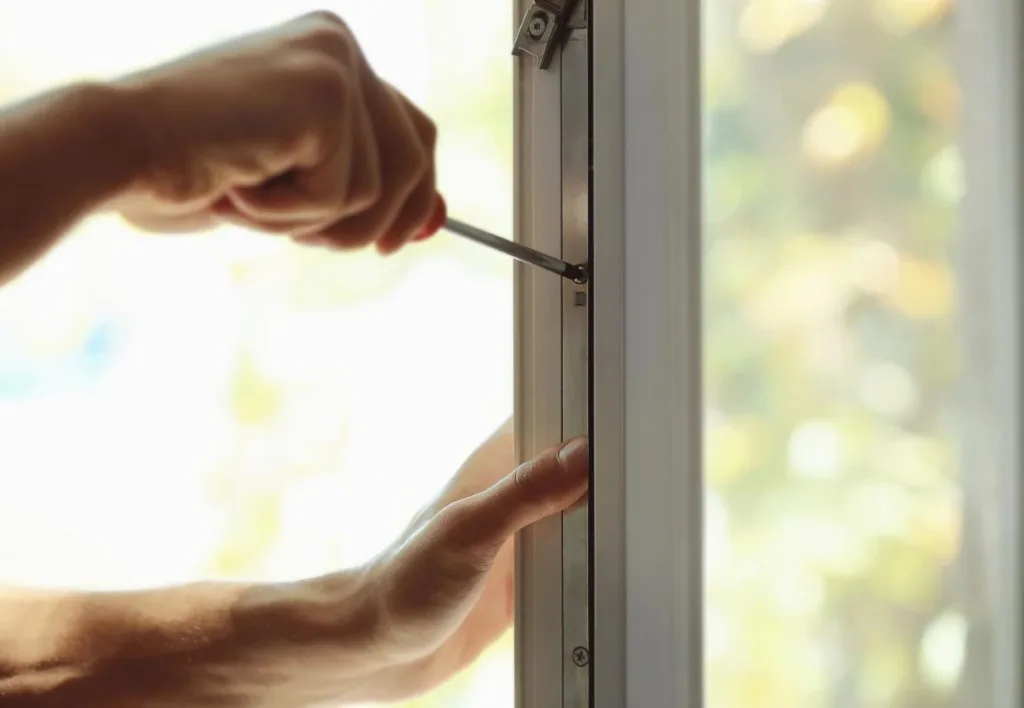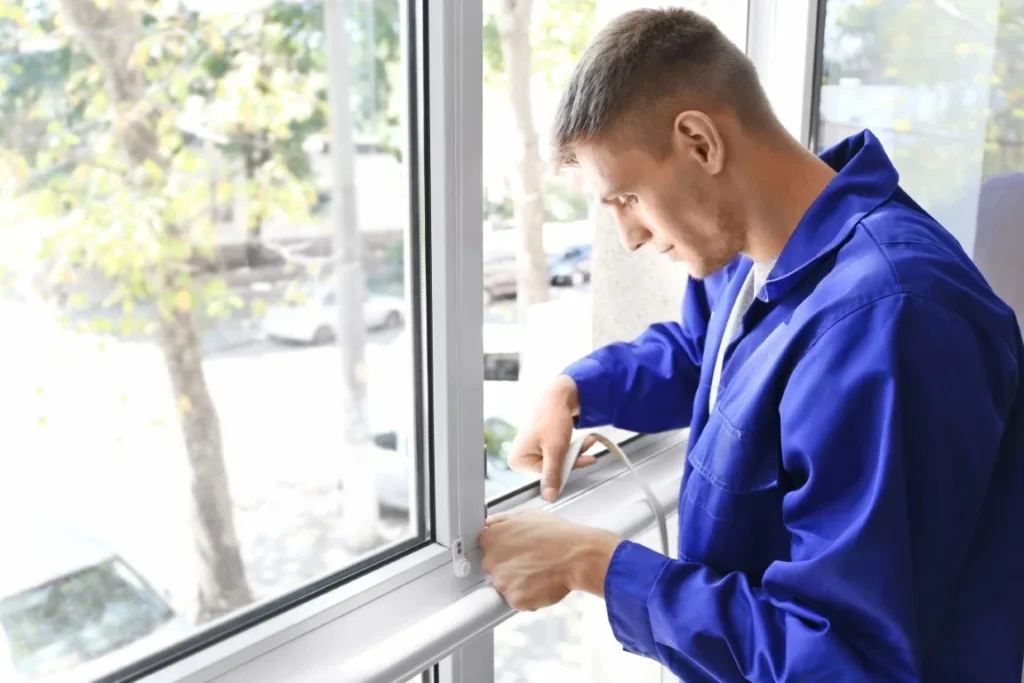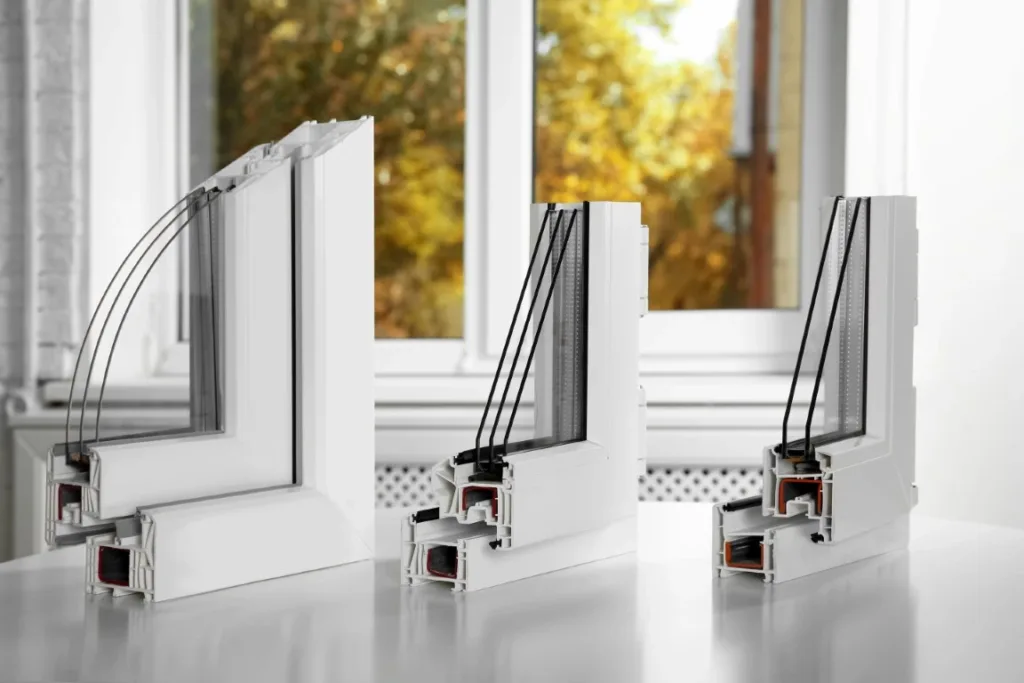
When it’s time to replace your windows, choosing the right material is one of the most important decisions you’ll make. Two of the most popular options are vinyl and composite windows. Both of these windows offer energy efficiency, durability, and modern aesthetics. However, the difference between them can impact performance, appearance, and cost.
Understanding the distinction between vinyl and composite windows will help you make a confident and informed decision that suits your home’s needs and budget. In this blog, we’ll explore the key differences between these windows so you can determine which material is best for your property.
What are Vinyl and Composite Windows Made Of?
Vinyl and composite windows are made from very different materials, which have a significant impact on their looks, lifespan, and durability. Vinyl windows are made primarily from polyvinyl chloride (PVC), a type of plastic. They are often hollow-core, but sometimes reinforced for strength, and are well-known for being lightweight and cost-effective.
Conversely, composite windows are made from a blend of materials, including wood fibers and thermoplastics or resins. When they are built, these windows are designed to mimic the strength and appearance of wood and are generally considered a stronger and more durable option than their vinyl counterparts.
While vinyl and composite windows may appear similar from a distance, their material composition significantly affects their performance over time, particularly in harsh weather conditions. If you are considering upgrading the windows in your home, it’s essential to work with a team of professionals and carefully weigh the pros and cons before selecting a material.

Understanding Performance and Energy Efficiency Differences
Both vinyl and composite windows perform well when it comes to energy efficiency, but there are a few key distinctions worth noting if you want to select the most energy-efficient windows.
Vinyl Windows:
- Excellent insulators with tight seals to keep out drafts.
- Often filled with insulating gas, like argon, between panes.
- Ideal for moderate climates when expansion and contraction aren’t concerns.
Composite Windows:
- Tend to be more stable than alternatives in extreme temperatures.
- Expand and contract less than vinyl, maintaining a better long-term seal.
- Can support triple-pane glass for higher efficiency.
When it comes to energy performance, vinyl and composite windows are both excellent options for homeowners. However, composite materials tend to hold up better over time in more demanding climates, making them a great choice for homeowners who experience extreme temperatures throughout the year.

Cost Differences: Budget vs. Long-Term Value
Price is one of the first things homeowners will consider when comparing vinyl and composite windows. Vinyl windows are generally more affordable and a great choice for budget-conscious homeowners or rental properties. These windows are also widely available and quick to install, which is great if you need to replace your windows as soon as possible.
Composite windows, on the other hand, are generally more expensive due to the complexity of their materials and manufacturing processes. They typically offer a longer lifespan, reducing replacement costs down the line. While vinyl and composite windows differ significantly in cost, your choice depends on whether you prioritize initial savings or long-term investment.
Your Maintenance and Aesthetic Options
One of the major advantages of choosing vinyl and composite windows for your home is their low-maintenance design. But, there are still a few differences you need to consider before making a choice for your home.
Vinyl Windows:
- Come in a variety of colors, but they cannot usually be painted.
- Colors may fade over time with repeated sun exposure.
- Require minimal maintenance and instead need an occasional cleaning.
Composite Windows:
- Offer a more flexible design and can mimic wood grain textures.
- Can be painted to match your home’s decor and aesthetic choices.
- More resistant to warping, cracking, or fading over time.
If the visual appeal and design flexibility of a window is an important factor for you, composite windows may be your best choice. However, both vinyl and composite windows offer far easier upkeep than traditional wood.
Which Window is Right for You?
Choosing between vinyl and composite materials for your home depends on your priorities. If you are budget-focused, vinyl windows may be a better choice. However, if you’re looking for long-term durability or live in a place with extreme temperatures, composite is designed to handle this with ease.
If you’re still unsure which option is best for your home, it’s best to reach out to a trusted glass provider for support. Your glass provider can assess your wants and needs and help you make the most informed choice for your property, ensuring you get the most out of your major investment.

Quality Vinyl and Composite Windows from Valley Glass
Whether you’re leaning toward more affordable vinyl windows or a high-performing composite option, understanding the difference helps you make the best choice for your property. If you want to ensure you choose the best window option for your home, turn to our team at Valley Glass for support.
For almost 70 years, we’ve provided homeowners across Salt Lake City, Ogden, Idaho Falls, and Boise with the best windows in the area. Whether you want to boost your home’s energy efficiency, improve its aesthetic, or avoid high-maintenance repairs, our team has the training and tools to help you choose the best windows.
If you would like to learn more about our window options or schedule a consultation for your property, contact us today.

